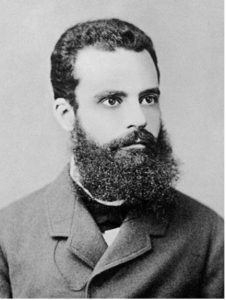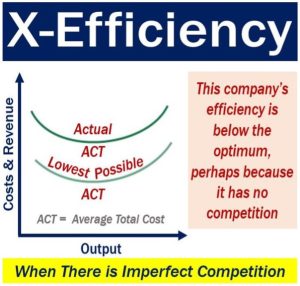
There is a war raging in UK social work presently. To name a few of the various battle fronts – the COVID recovery, rising inequality, the lurking shadow of increased privatization and increased levels of professional disaffection.
Sometimes as social workers we feel we are not doing enough of the right work with the right people and families. How do we provide good services within a turgid economic background, even with a sizable expansion in spending demand on our services will outstrip what we can ‘produce’.
Luckily our government have hired the wise Josh MacAlister to sweep away these issues….. And they all lived happily ever after etc.
To provide a different slant on the challenges I would like to consider the economic concept of Efficiency, (as I type I feel the combined vampiric recoil like I have just brandished a wooden crucifix or clove of garlic)
Efficiency and business speak is the bane of many of the caring professions, but I hope to offer a fresh context and embolden social workers strengthening their hand with some economic battle armour.
Economics can be looked at as the science of scarcity, how to maximize impact from a limited set of existing resources. Imagine you are the head of Social Care at a local authority, you have a budget normally in the £100’s of millions. How do you best allocate these resources to maximize their impact, across adults, education, mental health and childrens’ services?
Well, this question only leads to a further question – what impact is desirable ,what specific moral choice should we work towards.?
As social workers surely, we are looking to maximize positive lasting change.
The easy place to start our exploration of the history of efficiency is Scottish economist Adam Smith (he of the ‘wealth of nations’ 1776). His famous example was the producing of pins. Smith visited a pin factory that employed ten men each given one or two tasks out of a set of 18 (the total number of steps to make a pin). By specializing and using the correct tools they could produce 48,000 per day, if each worker made a pin from start to finish they would produce only 1-3 pins maximum each.
If only social work was as simple as the pin making production line, I would not have much to write about…..
There are 4 models of efficiency I feel worthy of exploration out of which I’ll attempt to squeeze something useful for Social Work.
Efficiency No.1 – Pareto Efficiency.
You think we have a hard job as social workers? Try founding data led economic and social sciences in Mussolini’s Italy, or further still being the El Duche’s Lecturer and growing one of the best hipster beards around! I give you Vilfredo Pareto.

Pareto’s take on efficiency focuses our minds on the marginal decision i.e., the impact of the next £1. If I had an extra £1 to spend as head of service, I would not spend it (rationally) on service X if I can get better impact with service Y (even if the difference is slight). If every pound is spent to this rule we have reached an efficient outcome. The imaginary local authority could not get a better outcome with any other spending configuration.
This is known as a Pareto optimal outcome. If the head of service changes the spending plan there would be a winner and a loser, a service or a family would gain, and one would lose out. If I take funds from leaving care and divert them to disabilities, leaving care will suffer and disabilities will gain, for example.
Pareto efficiency, or Pareto optimality, is an economic state where resources cannot be reallocated to make one individual better off without making at least one individual worse off.
Such a perfect situation exists only in economic text books, however I feel it is useful as a Occam’s razor type rule regarding resource allocation, the effective sharing of resources between Early Help and Child Protection being one prime example.
Efficiency No.2 – Social Work Management Speak (MS) efficiency.
(This is my made-up efficiency)
At this point it is important to highlight that when we hear of efficiency typically in our industry it only means costs savings – Cuts.
I feel a fair definition could be….
Social Work Efficiency (MS). The reduction of costs without a perceived reduction in statutory service delivery.
Perhaps more cynically how far can you reduce costs without OFSTED cottoning on – or more dramatically being put into special measures and possibly being taken over by an arms-length private provider.
The danger of looking only at costs savings above all else will never end well. Paradoxically in this case it will end up in inefficiency and ultimate failure, which in our industry can destroy people and families lives. Cost savings and their impact could be easily managed in Adams Smiths pin factory, with staff turnover and the daily number of pins produced likely to be the only considerations. Social care is far more complex with endless unintended consequences for families and communities. A golden rule is a measure i.e. cost saving cannot become a surrogate for running a good and efficient service (Goodharts Law)
Efficiency No.3 X- Efficiency and Privatization.
When tenders become available (for example to run a children’s home), firms will compete to win the bid which in the current climate will be the offering the lowest possible price whilst providing an acceptable standard in relation to statutory duties (MS efficiency)
The biggest firms will be able to bid the lowest and still make profits as their costs (HR department’s, management pay etc) will be spread across more contracts than a much smaller company. This process leads only to, bigger winners winning bigger and bigger, so the care system could end up like the UK supermarket industry with a few big players and thousands of tiny corner shops. Already ½ of all Independent Fostering Agency placements nationally are offered by just 6 providers. This has created obvious monopolistic concerns.
X efficiency is where, due to lack of competition or collusion of pricing or non-aggressively battling through contracts, firms can artificially increase their price and not offer creative solutions. Simply why would a dominant firm with a slick pitch team and a slew of attractive national contracts seek to innovate with risky new practices and look to reduce its prices
Josh MacAlisterhas in his part of the care view asked these providers to reduce their costs. I wonder if kind words will win or the Darwinian truism of hawks relentlessly eating up the doves till there are no doves left be the victor – I’ll hold my breath.
Boring chart lovers behold…….

Efficiency has an Evil Twin (as seen by managers) Slack.
Slack I feel can offer a further useful analysis for social care.
Let’s start this story like all good stories in the aisle of “stack ‘em high sell ‘em cheap” warehouse store CostCo.
Imagine walking round in CostCo not being able to find what you were looking for, faced with long queues and miserable unhelpful staff, other customers wandering around aimlessly , not buying as much as they once did . This was the case 15 years ago with the giant retailer due to management suits demanding it be as efficient or as Lean as possible. Staffing was cut to an absolute minimum, wages as low as possible to pump up its profits and the share price higher and higher.
Well, turns out the Jack Sprat (no fat) school of economics just leaves unhappy customers and staff feeling undervalued, underpaid, and over worked.

Costco turned this situation around through the leadership of their now CEO Craig Jelinek.
Craig’s CV is a short one, he started at CostCo in 1984, over the next 40 years working in nearly every position he became the heartbeat of their culture. When he got the reins at the top, he increased staffing (number of workers) and wages to $16 per hour (US min is $7.64). He kept the famous loss making $1.5 hot dog and soda deal and in short introduced “slack” in the system.
Slack in this sense meant paying more and having more staff on the shop floor way more than traditional efficiency would say was optimal. The outcome was a WIN for the markets and profits, the lowest staff turnover of any retailer in America (7% compared to industry average of 60%) and happy customers who keep coming back.
In Short Slack created success, the extra bits outside the boring economic charts or profit projections. Jelinek took an economic risk albeit based on 40 years of grinding hard work and getting to know every dusty corner of the business.
It is in the SLACK that us social workers do our best work, whilst record keeping, and timely assessments are a part of the story (despite what management say it is not 100% of the story).
NO Service user has ever said,
“It was when the IRO explained point 13 on the CP plan that the penny dropped and I made the changes I need to make for my family”
Slack sits outside bureaucracy and measurement and on the other side professional procrastination and laziness. This sweet spot, after we have completed our quota of recordings and assessments to a reasonable level, is where the social work gold dust happens. The extra human connection, the turn of phrase, the creative idea and that positive risk that was taken – this is social work. If social work services are cut to the minimum in the spirt of efficiency we will pay the cost.
If CostCo can do it bloody hell – so can we! Let’s arm ourselves with this jargon, challenge the glib smoke screen of efficiency savings, ask questions about private providers. If they are charging more ask why where is the additional value?
CostCo’s good example came from embracing their culture and a leader who has walked in every employee’s shoes, there are no short cuts to these type of wins that’s why there aren’t many examples in the business world.
For efficiency’s sake here are some take away messages
- Efficiency comes in many forms not just cost cutting.
- Economics must come into play when we have scare resources and competing demands.
- Slack is the space where we do our best work as Social workers and is therefore the antithesis of privatization and Management speak.
- Whilst SLACK can be championed by private companies like CostCo there are no shortcuts – the wisdom is hard and long won. Private providers in our industry I feel are bereft of this thoughtful culture.
- The danger of bigger winners winning bigger and bigger is creeping nearer to social workers. We need to gear our thinking up to slay this beast, so don’t be frightened to learn a little ‘Biz’ jargon to fight for what you believe in.
About the writer…..
George Bull
George has been a social worker for 10 years working mainly in child protection and Early Help. He has lectured with Jamie Scorer at New College Durham, University of Sunderland and University of Northumbria in solution focused practice.

